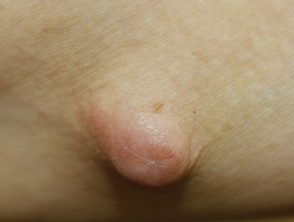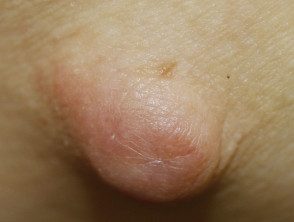What is IgG4?
IgG4 is a subclass of IgG, which is the most common form of immunoglobulin. IgG represents the 75% of antibodies circulating in the blood, which are an essential part of the immune response secondary to infection and toxins. IgG is made by plasma cells, a specific type of B lymphocyte.
There are four IgG subclasses. The IgG4 subclass is the least common of these, representing approximately 4% of IgG in serum. IgG4 has a unique structure. Its specific biological role is uncertain. However, IgG4 is known to play a role in protection against type 1 hypersensitivity reactions, for example to bee venom, and in the Pathogenesis of autoimmune blistering diseases such as pemphigus vulgaris, helminth infections and malignancy even melanoma.
What is IgG4 related disease?
IgG4-related disease is a recently described rare disease syndrome consisting of many disease entities previously thought to be unrelated. These conditions have the pathological characteristics of:
- Inflammatory pseudotumors, that is, organomegaly or nodules inside an organ
- Lymphoplasmacytic infiltration from tissues with many IgG4-positive plasma cells
- Storiform fibrosis (scarring involving cells arranged like a cartwheel in histology)
IgG4-related disease: inflammatory cutaneous pseudotumor

IgG4-related disease: inflammatory cutaneous pseudotumor

IgG4-related disease: inflammatory cutaneous pseudotumor
Elevated serum IgG4 is present in 60 to 70% of patients.
What is the cause of IgG4 related disease?
The cause of IgG4-related disease is unknown.
- It can be an autoimmune disorder: antinuclear antibodies and autoantibodies to pancreatic antigens have been found in autoimmune pancreatitis.
- Has characteristics of an allergic disorder: abnormally high Th2 cytokines in tissues, increased IgE and increased T-reg lymphocytes in the blood, and raised eosinophils counts in the 40% of the patients. IL-10 cytokines (interleukin 10) and TGF-β (transforming growth factor Beta) are known to support IgG4 production and are at elevated levels in IgG4-related disease.
Who gets IgG4-related disease?
Most of the patients described with IgG4-related disease are middle-aged or older men.
What are the clinical features of IgG4-related disease?
IgG4-related disease occurs in several ways.
- Most people with IgG4-related disease are constitutionally well.
- IgG4-related disease can be diagnosed as an incidental finding when someone undergoes a routine radiological or surgical research.
- 60-90% of people with IgG4-related disease have multiple organ involvement.
- IgG4-related disease often occurs as swelling or within an organ (such as skin, orbit, and lung); This is known as an inflammatory pseudotumor.
- IgG-related autoimmune pancreatitis is more likely than other forms of IgG-related disease to be associated with the disease elsewhere, such as the hilum lymphadenopathy, bile duct injuries, lacrimal and compromise of the salivary glands, hypothyroidismand retroperitoneal fibrosis.
- Lacrimal, parotid or submandibular salivary disease related to IgG4, pneumonitisand kidney disease are associated with pancreatitis in <20% de los casos.
- Patients with IgG4-related disease may have symptoms of allergy like asthma
- Up to 40-80% of patients with IgG4-related disease have lymphadenopathy.
- Cutaneous Manifestations of IgG4-related disease include erythematous plates, papulesand subcutaneous nodules, often itchy, and usually on the face or forearm. Most patients with IgG4-related skin disease report an inflammatory enlargement of the lacrimal or salivary glands at some point.
| Organ | Disease |
|---|---|
| Gastrointestinal disease |
|
| Lymph node intervention |
|
| Salivary and lacrimal disease |
|
| Eye disease |
|
| Heart disease |
|
| Thyroid disease |
|
| Lung disease |
|
| Nephropathy |
|
| Skin illness |
|
| Other |
|
How is IgG4-related disease diagnosed?
Diagnosis of IgG4-related disease can be difficult, since multiple organs may be involved simultaneously. The diagnostic criteria have not been fully developed.
Investigation into suspected IgG4-related disease requires a combination of clinical, endoscopicradiological and serological Tests for organ involvement and terminal organ damage (eg, hormonal abnormalities).
Tissue diagnosis requires a biopsy of affected organic tissues, including skin biopsy. See IgG4-related skin disease pathology. Features include:
- Lymphoplasmacytic infiltrate
- Stormy fibrosis pattern
- Plasma cells positive for IgG4 (the number of positive cells to confirm the diagnosis depends on the tissue type; most> 30-50 per high-power field, some, such as kidney, 10 per high-power field).
Blood tests are not diagnostic, but can show:
- Peripheral eosinophilia
- IgG4 raised serum.
There are specific criteria for the diagnosis of some specific tissue disorders, such as autoimmune pancreatitis.
How is IgG4-related disease treated?
IgG4-related disease is usually treated with systemic steroids, often prednisone 40 mg per day for 2 to 4 weeks followed by a gradual decrease in dose.
In patients who cannot withdraw from prednisone, a steroid sparing agent such as azathioprine or mycophenolate can be used. Rituximab, a Cell Bexhausting monoclonal antibody, has been used with some success.
Specific organ replacement therapy may be required:
- Thyroxine for thyroiditis (thyroid disease) causing hypothyroidism
- Pancreatic enzyme replacement for pancreatic insufficiency
- Insulin for diabetes mellitus
- Hormone replacement for hypopituitarism: hydrocortisone, thyroxine, growth hormone, desmopressin, and sex hormonestestosterone for men; estrogen and progesterone for women).
Which is the forecast of IgG4-related disease?
The prognosis of IgG4-related disease is variable. It can resolve or persist spontaneously, with recurring and remitting symptoms.
Main causes of morbidity and mortality are significant implications of organs such as:
- Liver cirrhosis
- Portal hypertension
- Biliary obstruction
- Retroperitoneal fibrosis
- Aortic dissection of an aneurysm
- Mellitus diabetes
- Pancreatic insufficiency
IgG4-related disease may be associated with a possible increased risk of non-Hodgkin lymphoma. It is not known whether IgG4-related disease leads to an increased risk of other forms of Cancer.

